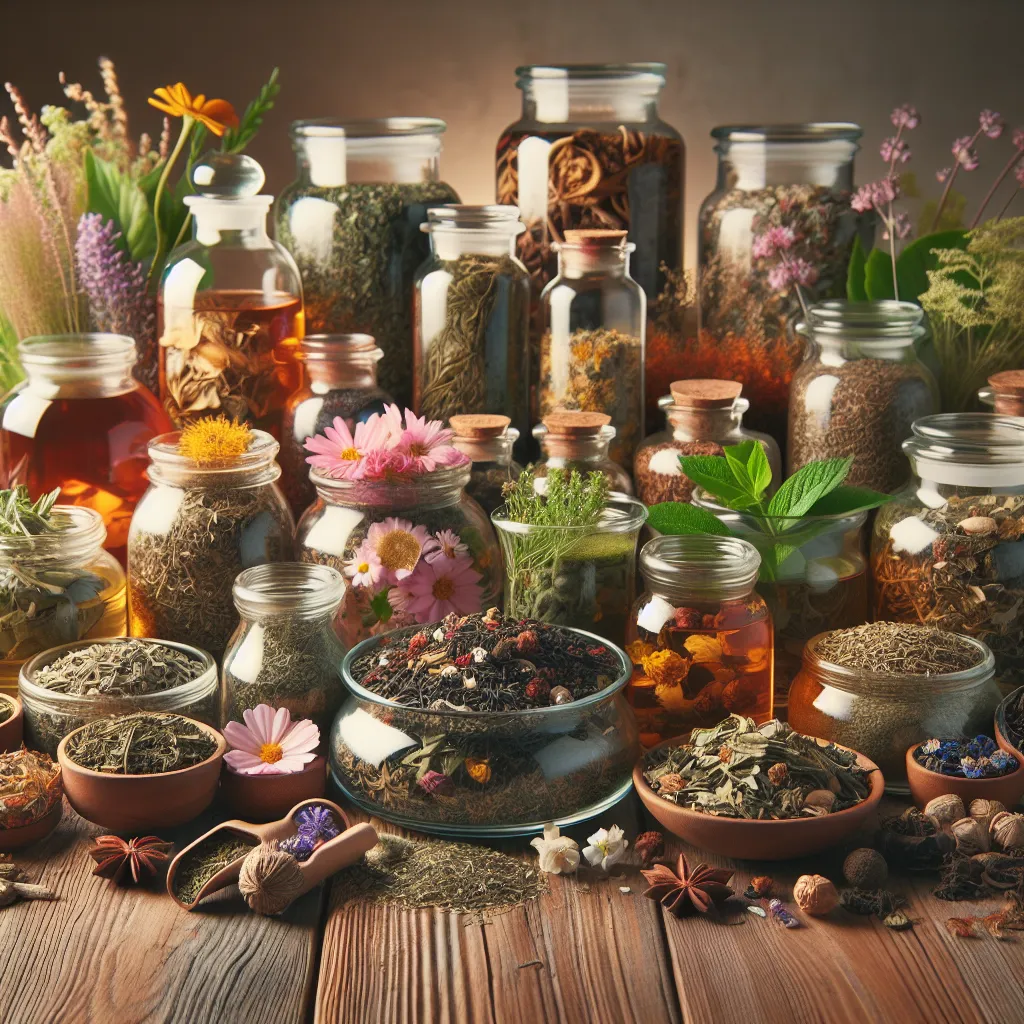The History and Origins of Herbal Teas
Herbal teas have a rich history that dates back thousands of years, with their origins rooted in various cultures around the world. The concept of using herbs for medicinal and wellness purposes can be traced to ancient China, Egypt, India, and Greece. In China, herbal teas, also known as “tisanes,” have been a fundamental part of traditional medicine and tea culture for centuries. Traditional Chinese medicine emphasizes the healing properties of various herbs and plants, many of which are used to brew therapeutic teas.
Similarly, in ancient Egypt, herbal infusions were highly regarded for their healing benefits, and they were often used in religious ceremonies as well. The Ebers Papyrus, an ancient Egyptian medical document dating back to around 1550 BCE, contains references to the use of herbs for medicinal purposes, including the preparation of herbal teas.
Herbal tea traditions also have deep roots in Ayurveda, the traditional system of medicine in India. Ayurvedic texts dating back thousands of years mention the use of herbal teas as a way to balance the body and promote overall well-being. Furthermore, the ancient Greeks were known to brew herbal infusions for their aromatic, flavorful, and medicinal properties.
Throughout history, the use of herbal teas has been intertwined with cultural beliefs, religious practices, and holistic approaches to health and wellness. As these traditions have transcended time and geographical boundaries, they have contributed to the diverse and fascinating world of herbal teas that we explore and enjoy today.
The Health Benefits of Herbal Teas
Herbal teas have been cherished for centuries for their delightful flavors and incredible health benefits. These natural infusions offer a wealth of wellness advantages, making them a popular choice for those seeking to enhance their health and well-being. From soothing digestive issues to boosting the immune system, herbal teas are a versatile and effective option for promoting overall health. Many herbal teas, such as chamomile, peppermint, and ginger, are known for their calming properties, making them an excellent choice for reducing stress and promoting relaxation. Additionally, the antioxidant properties of herbal teas, such as green tea and hibiscus, can help to protect the body from damaging free radicals and reduce the risk of chronic diseases. With their diverse range of flavors and health benefits, incorporating herbal teas into your daily routine can be a simple and enjoyable way to support a healthy lifestyle.
The Art of Blending Herbal Teas
The art of blending herbal teas is a fascinating and intricate world that combines flavors, aromas, and wellness benefits. Crafting a perfectly balanced herbal tea blend requires a deep understanding of individual herbs, their properties, and the desired final outcome. Each herb contributes its unique flavor profile and therapeutic properties, and skilled blenders combine them in a harmonious way to create a tea that not only tantalizes the taste buds but also nurtures holistic well-being.
When diving into the art of blending herbal teas, it’s essential to start with a clear vision of the desired flavor and wellness goals. Some herbs may bring a soothing note, while others may add a zing of freshness or a hint of floral sweetness. Understanding the characteristics of different herbs and how they interact with each other is crucial for achieving the desired results.
Furthermore, the quality of the herbs plays a crucial role in blending herbal teas. Sourcing organic, high-quality herbs ensures that the flavors and wellness benefits are at their peak. Whether it’s the earthy warmth of chamomile, the invigorating scent of peppermint, or the citrusy tang of lemongrass, each herb should contribute its best qualities to the blend.
Experimentation and creativity are at the heart of blending herbal teas. By mixing different herbs in varying proportions, blenders can create an array of delightful concoctions, each with its own distinct character. This journey of exploration and discovery allows for the crafting of unique blends that cater to specific tastes and wellness needs.
In conclusion, the art of blending herbal teas is a multifaceted endeavor that melds together flavors, aromas, and wellness properties to create a symphony for the senses. Through careful selection, understanding, and experimentation, herbal tea blenders have the opportunity to craft blends that not only delight the palate but also promote holistic well-being.
This thoughtful approach to blending herbal teas results in a diverse range of offerings that cater to a wide spectrum of preferences and health considerations, making the world of herbal teas a captivating and enriching domain to explore.
Exploring Unique Herbal Tea Varieties
Exploring unique herbal tea varieties can be a delightful journey for tea enthusiasts and those interested in holistic wellness. With an array of herbal teas available, each offering distinct flavors and potential health benefits, there is a diverse world to explore. From the robust earthiness of rooibos to the delicate floral notes of chamomile, the options are endless.
One unique herbal tea variety to consider is hibiscus tea, which is renowned for its vibrant crimson color and tart, refreshing flavor. Hibiscus tea is not only a feast for the taste buds but also offers potential health benefits, including being rich in antioxidants and vitamin C.
Another intriguing option is lemongrass tea, known for its citrusy aroma and gentle, lemony taste. Lemongrass tea is often enjoyed for its calming properties and is believed to aid digestion and promote relaxation.
Furthermore, exploring the world of herbal teas may lead to discoveries like elderflower tea, with its delicate, floral sweetness, or the unique earthy tones of dandelion root tea.
As you delve into the world of herbal teas, remember to consider not only the flavor profiles but also the potential wellness benefits each variety may offer. Whether you seek a soothing, caffeine-free beverage or are interested in the holistic properties of herbal infusions, there is a unique herbal tea waiting to be discovered, offering both a delightful taste experience and potential wellness perks.

